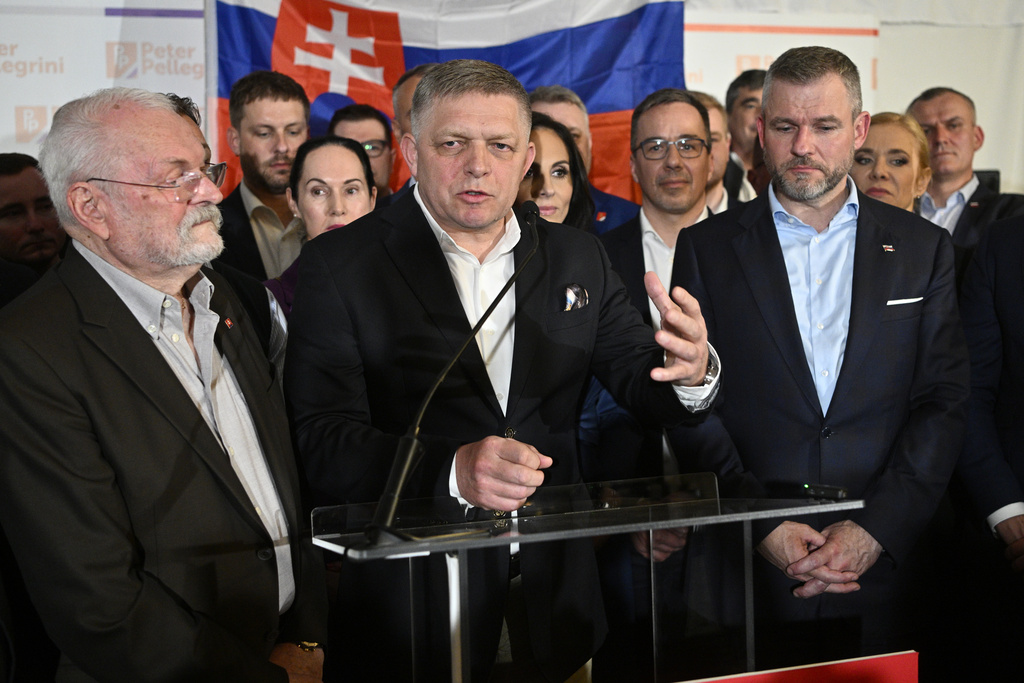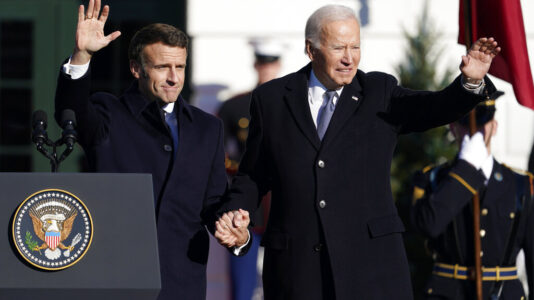This is not the first time Slovak Prime Minister Robert Fico has found Peter Pellegrini useful when overcoming a tricky problem, according to Polish political commentator Piotr Semka.
Pellegrini was nominated to be prime minister when Fico got into trouble and had to leave office previously. It was Pellegrini’s party that helped Fico back into power, and it is Pellegrini now whose presidential election victory means that Fico is in full control of Slovakia.
The presidential election result in Slovakia means that Fico’s dominance is complete and while Fico and Pellegrini will work in tandem, Fico will no doubt set the agenda.
Pellegrini setting up what seemed to be a rival party (HLAS) to Fico’s SMER, now looks to have been a skillful maneuver, creating a political vehicle that enabled Fico to reach parts of the electorate that he himself could not reach.
The new president-elect became speaker of the Slovak parliament thanks to Fico’s support, and Fico appeared at Pellegrini’s victory celebration after the latter won the presidential election leaving no doubt that he was Pellegrini’s patron, Piotr Semka noted
The fact that Fico now has an ally as president means that there will be fewer constraints upon him. It means that, unlike Vladimir Meciar in the 1990s, Fico will not have to put up with cohabitation and will be able to press ahead with his populist left-wing nationalist agenda.
According to the Polish political commentator, the synthesis of the left and nationalism seems to have been the result of a divide between the middle-class urban intellectuals who regretted the break-up with Czechia in the 1990s, and who came to favor close integration within the EU and rural and provincial Slovakia which was nationalist and pro-Russian.
The nationalist sympathies towards Russia created a good breeding ground for key messaging of Slovaks wanting peace, which Pellegrini used against his opponent Ivan Korcok.
Semka believes that, in contrast to the Czechs, “the national-leftist camp has always supported Russia, and recently began to play the card of opposition to Slovakia’s support for Ukraine in the war.” This is cloaked in quite attractively sounding slogans that “we want peace, and we do not want to be dragged into war,” he added.
Moreover, it is no coincidence that Pellegrini won the skirmish with Korcok by suggesting that he was the candidate of the war party, which is an abuse, as there is no evidence that the European camp wants war as a political goal. “Therefore, for Poland, Slovakia will be, much like Hungary, a country that is conducting a somewhat strange and disturbing game with Russia,” Semka claimed.
Asked about the high turnout in both Slovakia and the Polish general election last year, Semka suggested that this was because of the emergence of a clear and definitive choice on the political scene with two camps presenting very different visions for the country’s future.
The Catholic vote in Slovakia did not go to Pellegrini, despite the fact that Fico’s government has opposed the cultural revolution coming from the West. Catholic voters, according to Semka, turned against the Pellegrini/Fico tandem because they opposed the corruption implicit in Fico’s rule.





